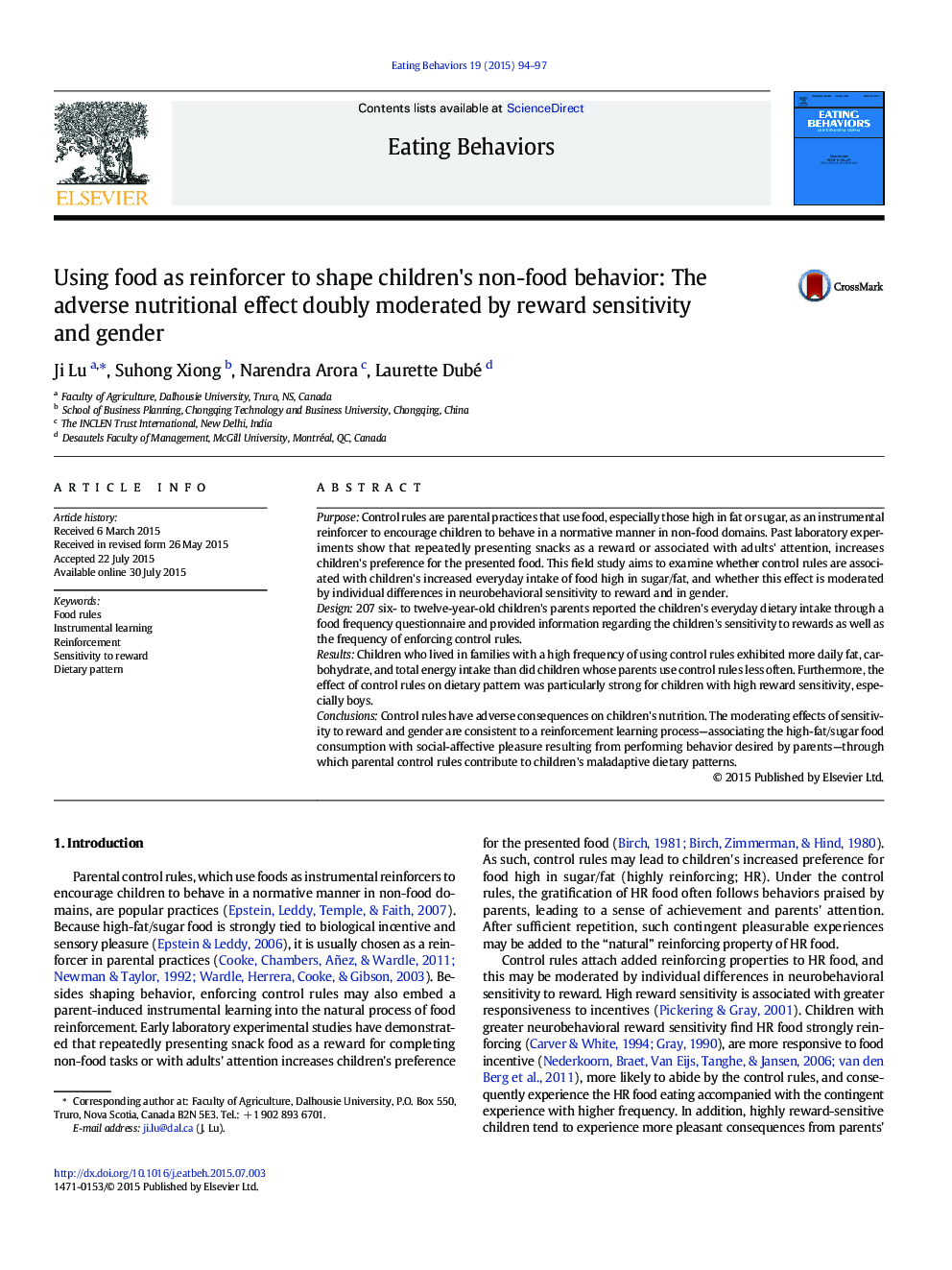| کد مقاله | کد نشریه | سال انتشار | مقاله انگلیسی | نسخه تمام متن |
|---|---|---|---|---|
| 906294 | 1472884 | 2015 | 4 صفحه PDF | دانلود رایگان |
• Control rules are parental use of food to encourage children to behave.
• Using control rules was found to be tied to adverse effects on children's diet.
• Control rules effect was particularly strong for boys with high reward sensitivity.
PurposeControl rules are parental practices that use food, especially those high in fat or sugar, as an instrumental reinforcer to encourage children to behave in a normative manner in non-food domains. Past laboratory experiments show that repeatedly presenting snacks as a reward or associated with adults' attention, increases children's preference for the presented food. This field study aims to examine whether control rules are associated with children's increased everyday intake of food high in sugar/fat, and whether this effect is moderated by individual differences in neurobehavioral sensitivity to reward and in gender.Design207 six- to twelve-year-old children's parents reported the children's everyday dietary intake through a food frequency questionnaire and provided information regarding the children's sensitivity to rewards as well as the frequency of enforcing control rules.ResultsChildren who lived in families with a high frequency of using control rules exhibited more daily fat, carbohydrate, and total energy intake than did children whose parents use control rules less often. Furthermore, the effect of control rules on dietary pattern was particularly strong for children with high reward sensitivity, especially boys.ConclusionsControl rules have adverse consequences on children's nutrition. The moderating effects of sensitivity to reward and gender are consistent to a reinforcement learning process—associating the high-fat/sugar food consumption with social-affective pleasure resulting from performing behavior desired by parents—through which parental control rules contribute to children's maladaptive dietary patterns.
Journal: Eating Behaviors - Volume 19, December 2015, Pages 94–97
